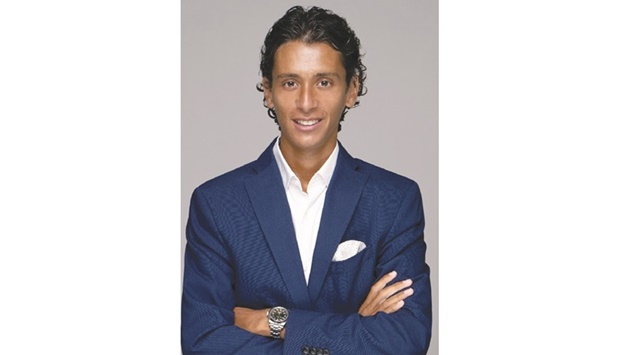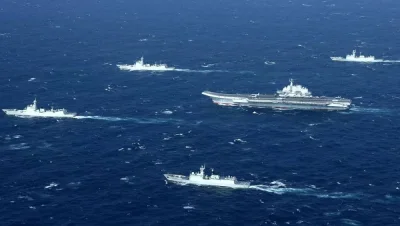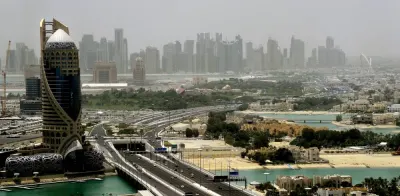Australian carrier Qantas and Europe’s Airbus Group have committed to jointly invest up to $200mn to help create a sustainable aviation fuel (SAF) industry in Australia.
“The Australian Sustainable Aviation Fuel Partnership” was signed in Doha on Sunday, ahead of the annual general meeting (AGM) of the International Air Transport Association (IATA). It is initially for five years and could be extended.
Qantas is sourcing SAF in London and Los Angeles but not in Australia.
"The problem is there is no sustainable aviation fuel industry in Australia and we would like to buy this in scale," Qantas chief executive Alan Joyce told reporters. "We think the way to do that is to put our money where our mouth is." The investment, which includes a $35mn of funding previously committed by Qantas, could go to a mix of start-up firms and more established operators and could include equity investments, Joyce said.
SAF is considered the most important way to decarbonise airline operations in the next few decades, before alternatively powered aircraft can be widely deployed in commercial operations. Compared to conventional jet fuel, SAF can reduce up to 100% carbon emissions on a lifecycle basis, depending on the SAF technology used. Aircraft today are powered by liquid aviation fuel, made mostly from fossil fuel sources. Yet new fuels have been developed that have the potential to dramatically reduce aviation’s net CO2 emissions. Although supply is currently limited (0.01% of global jet fuel use), sustainable aviation fuels (SAF) are already in use today and take-up is increasing.
SAF is often made from used cooking oil and animal fat waste. It’s is a clean substitute for fossil jet fuels. Rather than being refined from petroleum, SAF is produced from sustainable resources such as waste oils from a biological origin, or non-fossil CO2. It is a so-called drop-in fuel, which means that it can be blended with fossil jet fuel and that the blended fuel requires no special infrastructure or equipment changes. It has the same characteristics and meets the same specifications as fossil jet fuel.
Since the first commercial flight operated by KLM in 2011, more than 150,000 flights were powered by SAF. Commercial aviation currently accounts for approximately 2-3% of manmade global carbon emissions, but without action, aviation could consume up to 22% of the global carbon budget by 2050. To maintain growth and at the same time address its environmental impact, the aviation industry has committed to carbon-neutral growth per 2020 and reducing net aviation carbon emissions to 50% below 2005 levels by 2050.
More than 99% of airline emissions and approximately 50% of airport emissions are related to the combustion of jet fuel. Although increased energy efficiency and reduction in energy demand are effective ways to reduce fuel consumption and related greenhouse gas emissions, these improvements do not offer a sole solution to aviation-related emissions.
The aviation industry has a clear vision for its use of SAFs, and will adopt only fuels made from feedstocks that can be grown or produced without the risk of unintended environmental and social consequences, such as competition with food production or deforestation.
Several airlines are driving forward the use of SAFs by signing multi-million dollar forward purchasing agreements. Others have invested in start-up support for SAF deployment, and some have promoted SAFs through test flights, research, and investigation of local opportunities. Five airports also have a regular SAF supply: San Francisco, Los Angeles, Oslo, Bergen and Stockholm.
However, scaling up the use of SAFs to a global market is challenging and requires substantial investment. The industry has called on governments to assist potential SAF suppliers to develop the necessary feedstock and refining systems – at least until the fledgling industry has achieved the necessary critical mass and prices drop thanks to economies of scale.
More than 45 airlines now have experience with SAF, and around 14bn litres of SAF are in forward purchase agreements.
Airbus chief executive Guillaume Faury said the deal with Qantas was "unique" due to its recent plane order and Australia's isolated location and was not expected to be replicated with other airlines.
The author is an aviation analyst. Twitter handle: @AlexInAir
Qantas is sourcing SAF in London and Los Angeles but not in Australia.
"The problem is there is no sustainable aviation fuel industry in Australia and we would like to buy this in scale," Qantas chief executive Alan Joyce told reporters. "We think the way to do that is to put our money where our mouth is." The investment, which includes a $35mn of funding previously committed by Qantas, could go to a mix of start-up firms and more established operators and could include equity investments, Joyce said.
SAF is considered the most important way to decarbonise airline operations in the next few decades, before alternatively powered aircraft can be widely deployed in commercial operations. Compared to conventional jet fuel, SAF can reduce up to 100% carbon emissions on a lifecycle basis, depending on the SAF technology used. Aircraft today are powered by liquid aviation fuel, made mostly from fossil fuel sources. Yet new fuels have been developed that have the potential to dramatically reduce aviation’s net CO2 emissions. Although supply is currently limited (0.01% of global jet fuel use), sustainable aviation fuels (SAF) are already in use today and take-up is increasing.
SAF is often made from used cooking oil and animal fat waste. It’s is a clean substitute for fossil jet fuels. Rather than being refined from petroleum, SAF is produced from sustainable resources such as waste oils from a biological origin, or non-fossil CO2. It is a so-called drop-in fuel, which means that it can be blended with fossil jet fuel and that the blended fuel requires no special infrastructure or equipment changes. It has the same characteristics and meets the same specifications as fossil jet fuel.
Since the first commercial flight operated by KLM in 2011, more than 150,000 flights were powered by SAF. Commercial aviation currently accounts for approximately 2-3% of manmade global carbon emissions, but without action, aviation could consume up to 22% of the global carbon budget by 2050. To maintain growth and at the same time address its environmental impact, the aviation industry has committed to carbon-neutral growth per 2020 and reducing net aviation carbon emissions to 50% below 2005 levels by 2050.
More than 99% of airline emissions and approximately 50% of airport emissions are related to the combustion of jet fuel. Although increased energy efficiency and reduction in energy demand are effective ways to reduce fuel consumption and related greenhouse gas emissions, these improvements do not offer a sole solution to aviation-related emissions.
The aviation industry has a clear vision for its use of SAFs, and will adopt only fuels made from feedstocks that can be grown or produced without the risk of unintended environmental and social consequences, such as competition with food production or deforestation.
Several airlines are driving forward the use of SAFs by signing multi-million dollar forward purchasing agreements. Others have invested in start-up support for SAF deployment, and some have promoted SAFs through test flights, research, and investigation of local opportunities. Five airports also have a regular SAF supply: San Francisco, Los Angeles, Oslo, Bergen and Stockholm.
However, scaling up the use of SAFs to a global market is challenging and requires substantial investment. The industry has called on governments to assist potential SAF suppliers to develop the necessary feedstock and refining systems – at least until the fledgling industry has achieved the necessary critical mass and prices drop thanks to economies of scale.
More than 45 airlines now have experience with SAF, and around 14bn litres of SAF are in forward purchase agreements.
Airbus chief executive Guillaume Faury said the deal with Qantas was "unique" due to its recent plane order and Australia's isolated location and was not expected to be replicated with other airlines.
The author is an aviation analyst. Twitter handle: @AlexInAir



